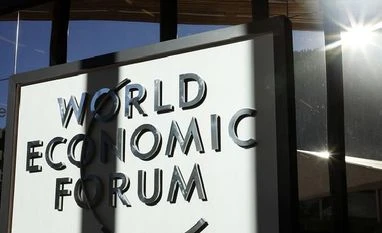The World Economic Forum on Tuesday announced that four more industrial clusters from Europe and the US are joining its 'Transitioning Industrial Clusters towards Net-Zero' initiative.
The initiative will enable these hubs to accelerate industrial decarbonization, boost job creation and improve competitiveness.
It will help connect private and public stakeholders from these industrial hubs, as they strive to meet individual and collective decarbonization goals, foster enabling policies and support local community engagement.
The four new industrial clusters are from the Netherlands, Belgium and the US.
They will work together with the WEF to reduce their carbon emissions faster through the Transitioning Industrial Clusters towards Net-Zero initiative.
Launched at COP26 in November 2021, the initiative aims to accelerate the decarbonization of hard-to-abate industrial sectors, while maximizing job creation and economic competitiveness.
More From This Section
The approach focuses on building cross-industry and cross-cluster partnerships to better implement low-carbon technologies -- as in the case of the regionally developed Basque Hydrogen Corridor -- and on accessing public funding and blended-finance options for clusters' decarbonization projects.
Under this initiative, the WEF, working closely with Accenture and the Electric Power Research Institute (EPRI) as knowledge partners, connects private and public stakeholders to assess how to meet individual and collective decarbonization goals, fosters new enabling policies and provides guidance and support for local community engagement.
Industrial clusters are geographic regions, where industrial companies are concentrated, making them an attractive target for impactful emissions reduction strategies.
Since industrial assets are located in close proximity, sharing of infrastructure (such as CO2 and hydrogen pipelines or renewable energy assets), financial and operational risks, and natural and human resources becomes possible.
This also provides opportunities to deploy and scale new green technologies, such as hydrogen and the capture, utilization and storage of carbon for industrial applications, enabling a systemic approach to emissions reduction.
The four large industrial emissions centres, involving oil and gas extraction and processing, shipping, heavy-duty transportation, chemicals and other sectors, currently account for CO2 emissions of 296 million metric tonnes per year greater than the annual emissions of Poland.
They employ more than 470,000 people and represent an annual gross domestic product (GDP) of USD 135 billion.
The four new clusters join four others in the UK, Australia and Spain, which were part of the initial launch of the initiative.
Based on metrics provided by each cluster, all eight clusters could potentially save more than 334 million tonnes of CO2 more than the equivalent annual emissions output of France. They could also create and protect 1.1 million jobs and contribute USD 182 billion to regional GDP.
)